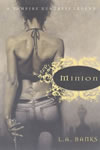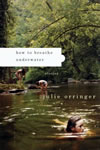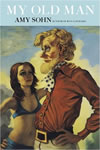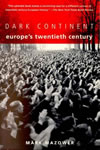The Patriots are world champions of American Football. (Interesting expression, that.)
Again. Three times in four years.
This kind of dominance is very unusual in football. The league is designed for parity, trying to ensure that every team has a shot (almost) every year. The schedule is so short (16 games) that pure chance plays a big role. Even the shape of the ball is designed to thwart dominance; footballs are football-shaped because that way you get crazy bounces.
The odd thing about the Pats is that nobody is sure why they're winning. That's very odd. The Bears, in the 1940's, were dominant because they invented a formation that nobody knew how to defend; until people figured out what to do about the formation, those Bears won by ridiculous margins. The old Packers had an offensive line that was stronger than anyone's defense. The Niners were a little like both -- they had a scheme that nobody could defend, and they had players nobody could match, and so until people figured out the scheme and the players got old, the Niners were hot.
But what, exactly, is it that the Patriots do so well? People try to fit them into the usual mold, but this leads to silly positions like "Tom Brady is the most talented quarterback in history", which just doesn't square with what we see.
My guess: the Patriot coaches have developed a really good methodology for identifying exactly what individual players can and cannot do, and they are exceptionally good at not asking players to do things they can't. Football's an emotional game, and it's also a chancy game: a lot of the time, you can get away with a bad play or a bad player, and this leads lots of teams into fooling themselves. Either they reach too far -- which gives you mistakes and ruins the player's confidence -- or they are too timid -- which leaves talent and opportunity on the bench.
The Patriots don't do this. When their star quarterback gets hurt, they redo the offense so a mediocre (but smart) quarterback can use his intelligence without worrying about making difficult passes. After a year or two, he's got some practice and everyone is expecting easy passes; now, they let him throw upfield. When their starting cornerbacks both get hurt, they cobble together some way to manage with spare parts. Meanwhile, they get little bonuses from odd bits of talent -- a linebacker who can catch becomes a red zone receiver you can't jam at the line, and an aging receiver with experience becomes an emergency nickel back.
How would you prove or disprove this conjecture? This is a fundamental methodological problem that crops up all over the place, and it maps nicely onto a frequent problem in new media too. We have tools we can use to measure things like "Corey Dillon is the fastest back in the league" (he's not), or "Tom Brady has a better arm than Joe Montana" (he doesn't). But how do we prove or disprove things like:
- The Patriots win because they don't ask players to do what they cannot, but they do ask players to do what they can -- even if you wouldn't expect it
- Apple's renaissance is due to the return of Steve Jobs
- 90% of Flash is bad
- Consistent Web navigation and minimalist page design yield the most effective sales sites
- Comments are a corrosive force that tend to destroy general-interest weblogs, but links are almost always beneficial
It's easy to argue and adduce examples, but how do we build rigorous arguments that opponents can't casually demolish?


















